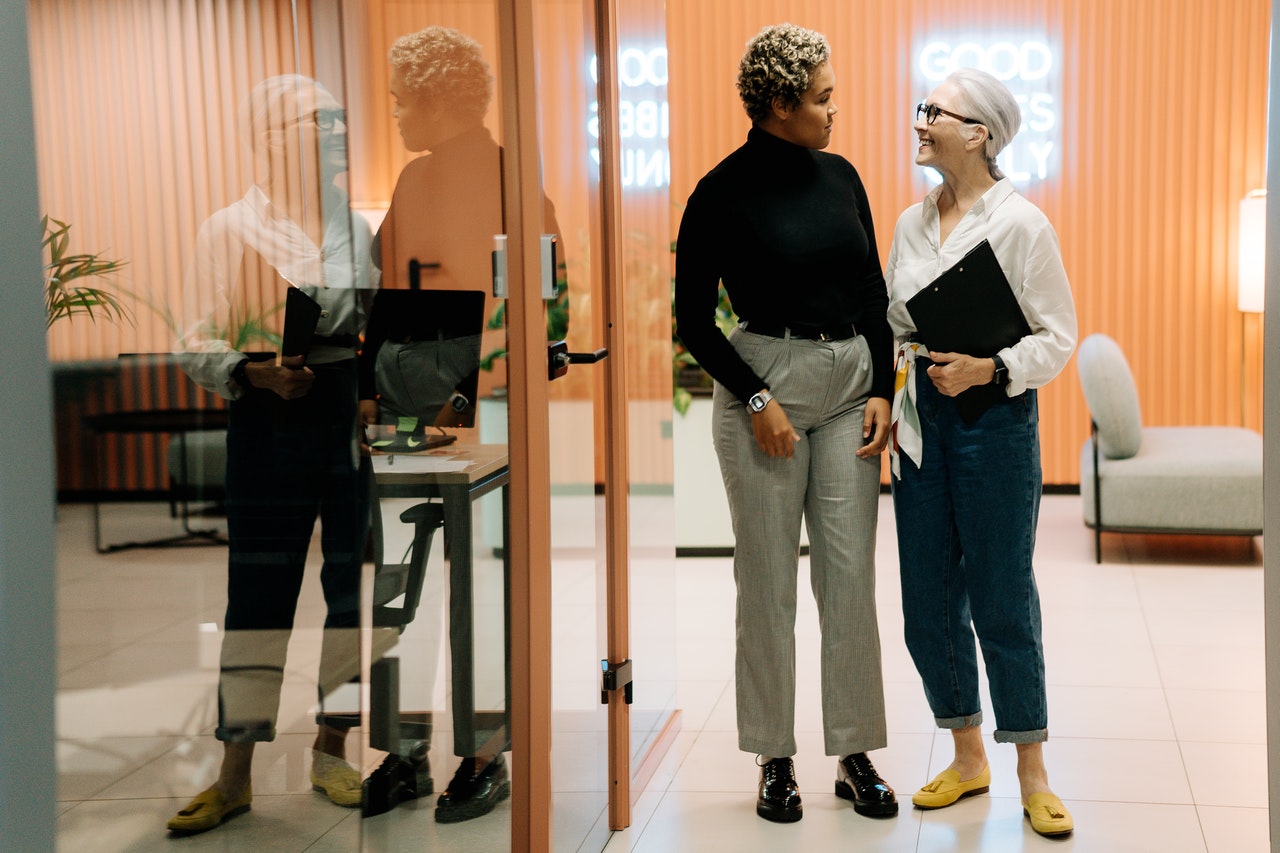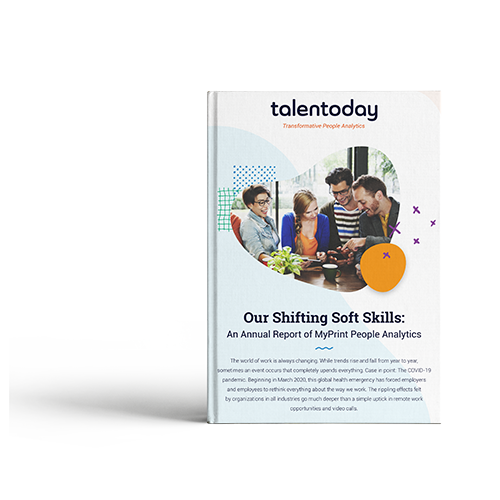3 HR Trends That Will Define 2022 and Shape the Future of Work
Employers entered 2021 with cautious optimism. After a year of pandemic-induced uncertainty, there was hope that improved safety measures, including the widespread availability of life-saving vaccines, would bring back a sense of stability to the working world.
Unfortunately, as our plans for the workplace evolved, so did COVID-19.
And so, 2022 begins with familiar themes for employers and employees alike. COVID variants are forcing many to maintain or step back into hybrid and fully remote settings. Organizers of team building events, training and onboarding sessions, industry conferences and other in-person plans must once again adapt, reschedule or prepare to shut it all down entirely.
Will the year ahead be a repeat of the last one? Not quite. Three HR trends are poised to define 2022 by building upon concepts that have had a positive impact on working teams struggling to find their footing in a pandemic world: Skills-based hiring and retention efforts, workplace wellness programs and DEI initiatives.
Emphasis on Skills-Based Hiring and Retention Efforts
The only phrase that may have appeared in more headlines than “COVID-19” in the last year was “The Great Resignation.” Eye-popping numbers, such as a record 4.3 million workers quitting their jobs last August alone, confirm that this reshuffling of the workforce is more than just a passing phase. Now, employers are embracing the fact that the old ways of hiring and retaining talent are not cutting it anymore.
- Hiring: For one, skills-based hiring has gained new attention as the talent pool tightens. Recent reporting from AARP indicates that most employers (76 percent) say they prioritize skills over other factors, such as education, when hiring. 66 percent say their organization needs to go even further in emphasizing the importance of skills above everything else. However, the skills needed for work in an increasingly hybrid and remote world are different from those needed in previous settings. In fact, an evaluation of thousands of Talentobe MyPrint assessments - our proprietary questionnaire scientifically designed to explore individual personality traits and motivations - taken prior to the onset of the pandemic compared against data collected in the months that followed revealed a rise in the prominence of certain soft skills (autonomy, recognition and responsibility) and the decline of other soft skills (structure, empathy and grit.) In short, the way we work is changing, but organizations have been slow to match their hiring practices to this shift. For employers, it’s time to catch up or risk missing out on top talent.
- Retention: While getting new talent in the door poses a challenge for employers, keeping them in the room is even more difficult. To cut down on climbing turnover rates, employers are going beyond increased compensation and unique benefit packages to entice employees to stay put. The new word in retention is growth. HR teams are redesigning their training programs to make upskilling a priority. First, organizations are evaluating their current workforce to identify where skills gaps exist. Then, managers must implement flexible action plans tailored to individual and team availability. An investment in people today can pay dividends in the months and (hopefully) years ahead.
Wellness Programs are Here to Stay
Of course, 2020 was a wake up call for many companies. Employees were faced with a global crisis and made it clear that they were not okay. In response, a reported 94 percent of companies made investments in well-being programs, including support for mental, physical and financial health. Unfortunately, that same reporting reveals that less than 40 percent of employees have taken advantage of these programs being offered by employers. Does this mean that these programs where just another addition to the list of failed HR trends or is there something else going on here?
Moving forward, HR professionals will need to find ways to better engrain these offerings into company culture. For example, coupling formal benefit offerings with practices such as mental health time off and personalized recognition offerings can transform these initiatives from window dressing into core practices tied to everyday work activities.
Diversity, Equity and Inclusion in a Hybrid World
Finally, there’s a new digital divide emerging between the in-person workforce and those working in remote settings. According to Harvard Business Review, managers are more likely to promote employees who come into the office compared to those who don’t, regardless of performance. The same data shows that women and people of color are preferring to work from home at greater rates compared to white men. This could mean that marginalized groups will once again be excluded from key opportunities.
The irony is that the very same hybrid and remote work opportunities that have expanded talent pools for many organizations may now be contributing to gender wage gaps and a lack of diversity in leadership positions. After a period that has brought so much attention to diversity, equity and inclusion in the workplace, employers must find a way to double down on these efforts in an increasingly hybrid world.
The Future of Work and These HR Trends
It’s impossible to predict what the future holds when it comes to factors outside of our control, including the changing nature of COVID-19. Yet, organizations can take control of the ways they attract, retain and empower the talent they employ. These HR trends are more than just the hot topics of the moment; they represent a significant shift towards valuing what matters most in any workplace settings - the health, wellbeing and growth of people.
Meet the moment by addressing these HR trends for the year ahead with the power of people analytics. Experience how MyPrint can uncover a better way to hire and retain a top team by clicking here!
Our Shifting Soft Skills: An Annual Report of MyPrint People Analytics
The world of work is always changing. However, in the last two years, organizations in all industries have to rethink everything about the way we work.
How have your employees changed? Are you ready to adapt your processes to meet their evolving needs?
Learn how to embrace personalized solutions that are driven by the latest soft skills data and tailored to the changing personalities and motivations of the workforce.
Utilizing MyPrint personality assessment results gathered from the start of the COVID-19 pandemic, this report investigates:
- 6 Soft Skills on the Rise
From increased autonomy to a need for more variety, what is driving employees to succeed? - 6 Soft Skills on the Decline
What impact will lower levels of skills like grit and empathy have on your team? - The Effects on Workplace Behaviors
Leadership, work and learning styles are all changing alongside our shifting soft skills.
Click here to download our report detailing the soft skills trends making an impact in the workplace.


